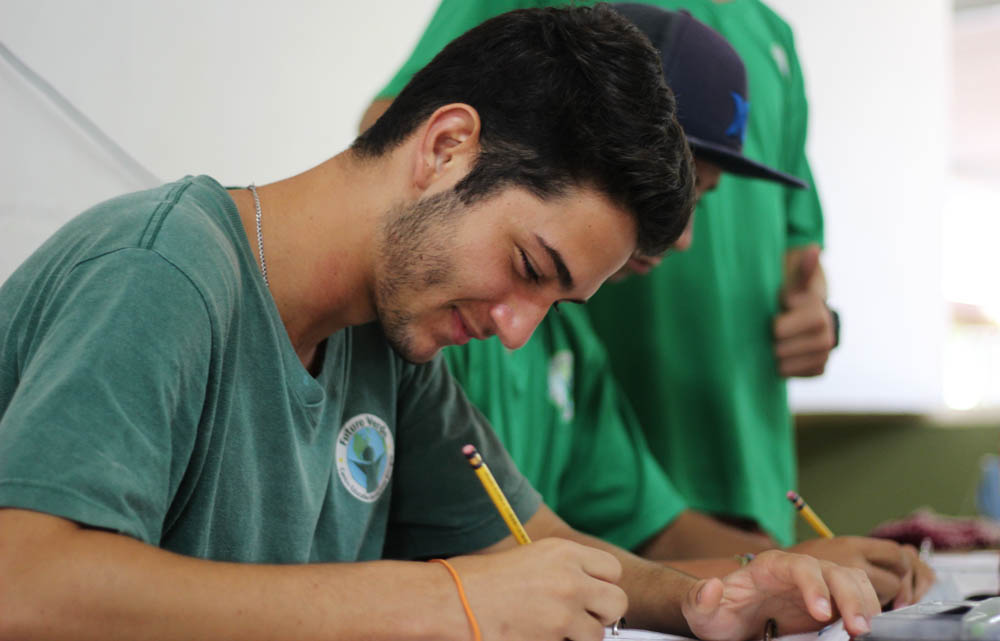
by Lural Ramirez | Dec 26, 2017

As Futuro Verde moves into its first year as an IB World School, we are excited for some new curricular changes in 2018 that will benefit students at all ages and stages in our school and better prepare all students for their new end goal of an IB diploma!
In preschool and primary school:
- Two sessions of mindfulness classes for each grade, each month- keeping kids in touch with their emotions and on the path to a healthy, calm and mindful self
- Weekly library time- to listen to a story read aloud by our librarian Daniela Ugalde and to check out or renew a book from our school library, which boasts over 5,000 unique titles at all reading levels. Building their love for reading one book at a time!
- CREW time twice weekly- this extension of ‘homeroom’ assures everyone in class is a part of the crew, no passengers allowed. A great time to set class goals, reflect and build community!
All of these changes come in addition to the holistic offering Futuro Verde has always shown commitment to: swimming, physical education, art, music, environmental education, comparative language study, global studies, technology classes, peace practices and all the basic subjects required under Costa Rican law and our MEP accreditation.
In middle and high school:
- Electives! Choose between-
- Physical education options: for the first trimester students will choose between swimming and cycling to complement their general physical education classes. Each new semester will bring fun new options to choose from!
- Additional languages: French or Classical Languages
- The Arts: choose which semester to take music or visual arts
- CREW time twice weekly- same goals as in primary and preschool grades with an added emphasis on self-management and organizational skills.
For students in 11th grade, the choices abound:
- Language Arts and/or Acquisition: Literature (Spanish), Language and Literature (English), English B or Spanish B
- Business Management
- Biology
- Math Studies
- The Arts: Music or Visual Arts
For all IB classes, students choose from within each group and, additionally, which classes they would like to take at a higher level. These classes come in addition to their Core classes: Theory of Knowledge, CAS and Extended Essay.
It is looking like it will be a fantastic 2018 school year ahead at Futuro Verde!
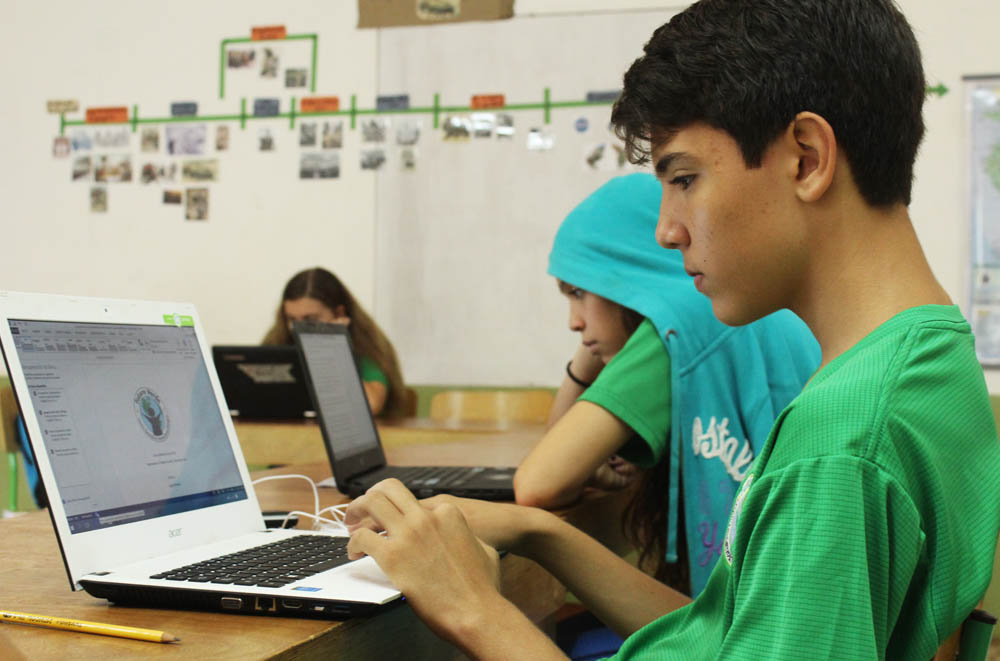
by Stuart Millar, IB coordinator | Nov 13, 2017

Over the last few years there has been concentrated focus and investment in technology at Futuro Verde. The multi-media center offers our students of all ages the opportunity to use one of our 20 desktop computers. Investment in EBSCO means that all students now have the necessary tools to conduct research from varied and high-quality sources. Use of Google Classroom in all high school classes gives teachers and students a two-way portal to communicate effectively about classwork, homework, and projects.
As we prepare for the launch of the IB Diploma Program at Futuro Verde we continue, as always, to ask ourselves, “How can we prepare our students to be as successful as they can be?” The diploma program will require a new level of research both in school and at home, greater use of Google Classroom, and an increased level of academic writing as they undertake the Extended Essay and other research projects. For this reason, all students in 11th and 12th grades will be required to have a personal computer and bring it to school every day. While all high school students would benefit from having a personal computer, it is particularly recommended for students in 9th and 10th grades as they prepare to embark on the IB diploma in 11th grade.
We understand that purchasing a personal computer for your student is a sizeable investment and would encourage you to start planning as soon as possible. Please do not hesitate to contact us with any questions that you may have.
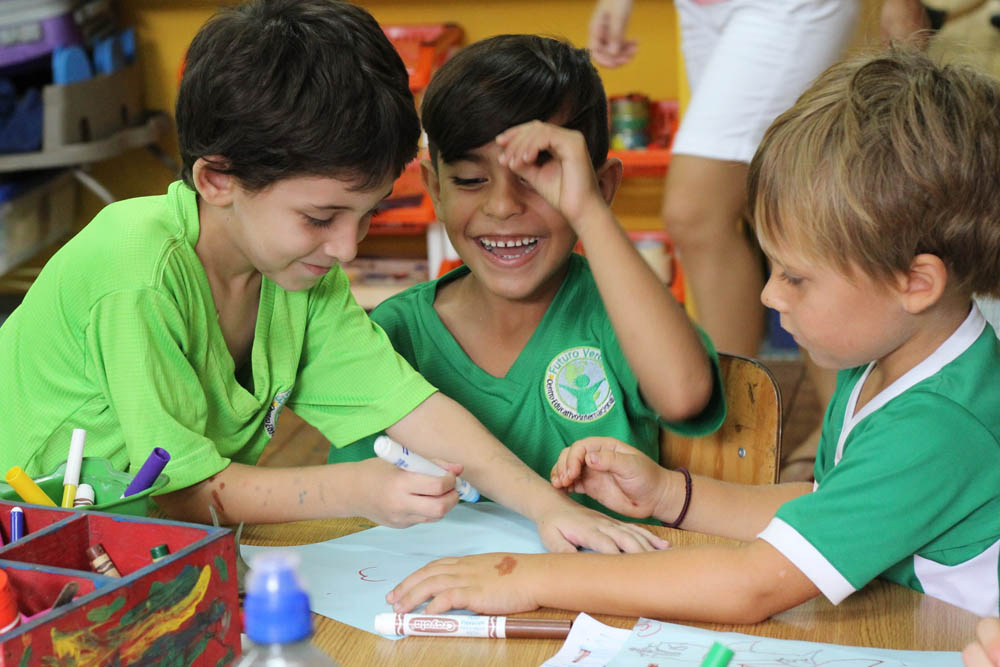
by David Brookshire, MPH/ School Counselor & Special Education Case Manager | Nov 1, 2017

Our IB learner profile value for the month of November is “Reflective.” This value is described by the International Baccalaureate organization in the following way:
“They give thoughtful consideration to their own learning and experience. They are able
to assess and understand their strengths and limitations in order to support their learning
and personal development (IB 2017).”
As the 2017 school and calendar are coming to an end, we inevitably reflect on the year behind us. The yearly cycle offers an opportunity for us to take inventory on what went well and what could be even better as we set goals for the coming year. In learning and education, we have several of these cycles to take advantage of. The daily cycle, the weekly cycle, the monthly cycle, and the trimester cycle all offer opportunities for reflection.
Whether learning in an academic setting or in terms of personal development, having a growth mindset can allow us to consider our strengths and limitations within a balanced, open-minded context. With an emphasis on practice, effort, and skill acquisition, we can recognize that today’s limitations could be tomorrow’s strengths with the right attitude. By embracing challenges, we realize effort is the path to mastery and through feedback and reflection, we can always “upgrade” our strengths. This attitude and approach, in itself, requires practice and can contribute tremendously to our learning and personal development when embraced with an open mind.
From the field of Positive Psychology, we also know that understanding our strengths can assist us in harnessing our attributes to better serve us. The research shows us that if we understand and use our character strengths to tackle challenges, we tend to be happier and experience less stress. Furthermore, awareness and development of our strengths usually contribute to more confidence, faster growth, and more satisfaction (Psychology Today 2014. https://www.psychologytoday.com/blog/functioning-flourishing/201411/ten-reasons-focus-your-strengths). For example, if someone has the strength of Curiosity, they can utilize it to affect their mindset as they explore ways to approach a new task or project. Some of the character strengths we can identify include: kindness, honesty, bravery, humor, gratitude, etc. Knowing, understanding, and utilizing our strengths requires regular reflection as we attempt new challenges. To see a complete list of character strengths and to take a free survey to identify your own strengths you can visit the VIA Institute on Character’s website at http://www.viacharacter.org/www/Character-Strengths-Survey.
By utilizing reflection as a tool, we can constantly become better versions of ourselves in whatever we aim to achieve and we can model this for our children and students. With a growth mindset, armed with understanding of our personal strengths, we can reflect on any challenge or situation and evaluate what happened. Next, we can analyze and decide what went well and what could have been done differently. From here, we can devise an action plan and begin the cycle again (Gibbs 1998. Leeds Beckett University. Skills for Learning. Available at http://skillsforlearning.leedsbeckett.ac.uk/preview/content/models/03.shtml).
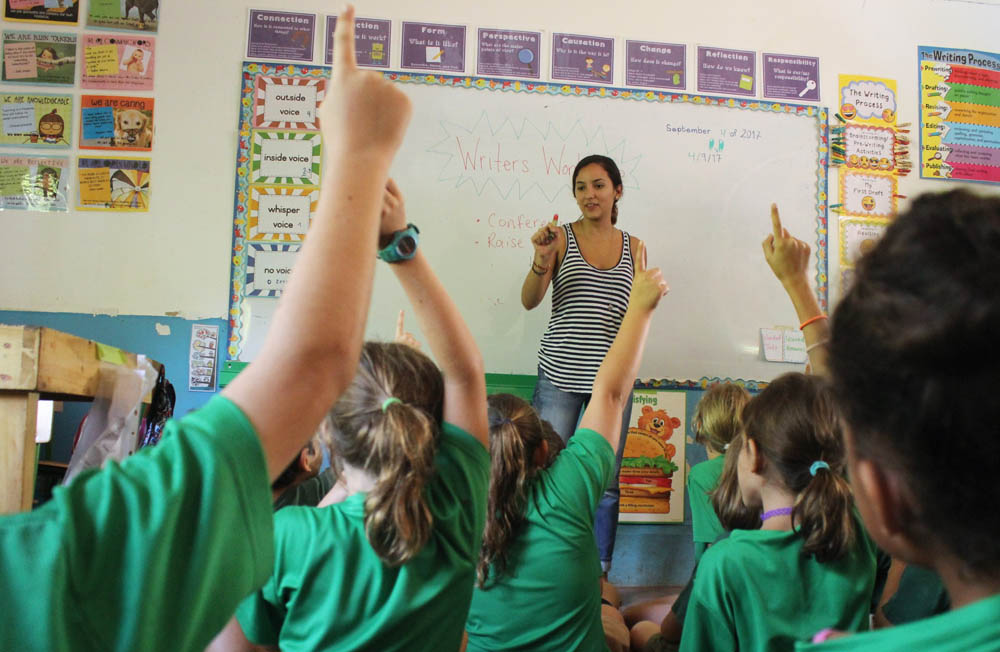
by Lural Ramirez | Nov 1, 2017

Often in the world of education you will hear, “Good teaching is good teaching”, with the meaning that there are universal qualities of a good teacher that are equally valid and important in any educational context. This argument is often made regarding teachers working with language learners, with the idea that good instruction for a native speaker is equally high quality for a student in class still acquiring the language of instruction. While it is true that there are universal defining qualities of excellent educators: patience and attentiveness, creativity, critical thinking, a great personality, among other qualities; in my experience, there are additional and essential qualities specific to educators working in an international context and with language learners.
These necessary qualities include:
- Professional qualifications in both the pertinent content area(s) and in the area of teaching and education: whereas we have all met someone we consider to be a “natural” teacher, it is important to not discredit the value of formal education and training in teaching and education just as it is equally important to hire educators who are experts in their field of study. Both of these qualifications should be highly valued and sought out during the recruitment and hiring process at any international school. Lack of one qualification or the other can undermine a student’s education and lead to learning gaps.
- Superior emotional and cultural intelligence skills: respect and understanding for the culture of the host country and language in combination with an open-minded perspective and openness to divergent ideas and ways of being are especially essential for educators who work in international schools and with diverse student populations. It is essential that students’ feel accepted and valued within their school context.
- Knowledge and application of strategies and techniques that support language acquisition through content: in an international context a good teacher has to become a great teacher by not only providing appropriate content instruction and learning experiences, but by providing instruction with the use of techniques and language supports that have been proven by research to be the most effective in students optimizing their language acquisition whilst they acquire new content learning. These strategies and techniques are not necessarily taught in most teacher education universities and it is, therefore, a goal to hire staff with additional training and qualifications related to language learning. High-quality additional qualifications might include: ESOL endorsements and certifications, TEFL certifications from respected and validated training programs, International Baccalaureate (IB) trainings, among others.
- Ability to impart content knowledge with a local and global lens simultaneously: an international school has the unique goal and responsibility to prepare students for success on both a national and an international stage. Content cannot be taught within only a narrow lens of national realities and context. International school graduates are much more likely than their traditional school peers to have future careers with an international connection and therefore their education from a young age must reflect that unique reality. Furthermore, a commitment to contextualizing learning in relation to the diverse schema of all students in an international school assures they optimize their solidification of concepts and maintains students connected to their learning in as meaningful a way as possible.
In Futuro Verde, we are grateful and fortunate to have a highly qualified staff with strong professional qualifications and ways of being consistent with high-quality international educators!
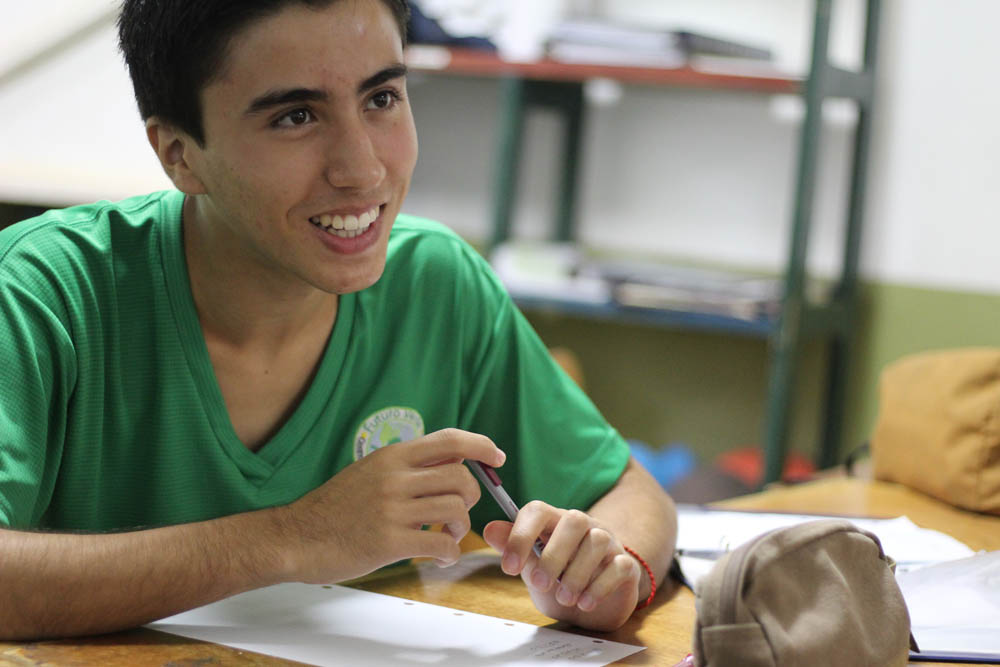
by Stuart Millar, IB coordinator | Oct 26, 2017

After many years of dreaming and three years of application, we received the news we all had been waiting for. It has a nice ring to it, doesn’t it? Futuro Verde – An IB World School. In just over three months our International Baccalaureate diploma program will start. “If we get IB” – something I’ve said for the last few years – is now no longer part of my vocabulary!
The future is certainly bright and in so many ways. In the next few weeks, current 10th-grade students will make their selection of courses for the two-year diploma program, teachers will continue to finalize their unit plans of instruction, and the finishing touches will be made on some of our new learning spaces. This is a game changer for our students, our staff, our families and our local community. In the first day back after the vacation, a sense of relief, pride, and a greater level of motivation were palpable among the staff. Students will now have greater opportunities open to them. These opportunities include new course selections and greater possibilities for further education and employment in the future. Authorization as an International Baccalaureate World School gives official third-party approval from a prestigious international institution and affirms something we have always known to be true. Futuro Verde provides a high-quality, holistic, bilingual education in a unique setting. Futuro Verde’s achievement further solidifies the sustainability of our community and local economy. Local children in this rural community have access to education that is normally just available in richer or more urban areas, families will continue to be attracted from all over the country and the world, and it gives those who live here the ability to stay while providing their children with a high-quality education. To survive and grow a local community requires highly educated citizens to be the professionals, employers, and leaders in the future. Futuro Verde, with the IB diploma program, is now in an even stronger position to educate and nurture those leaders.
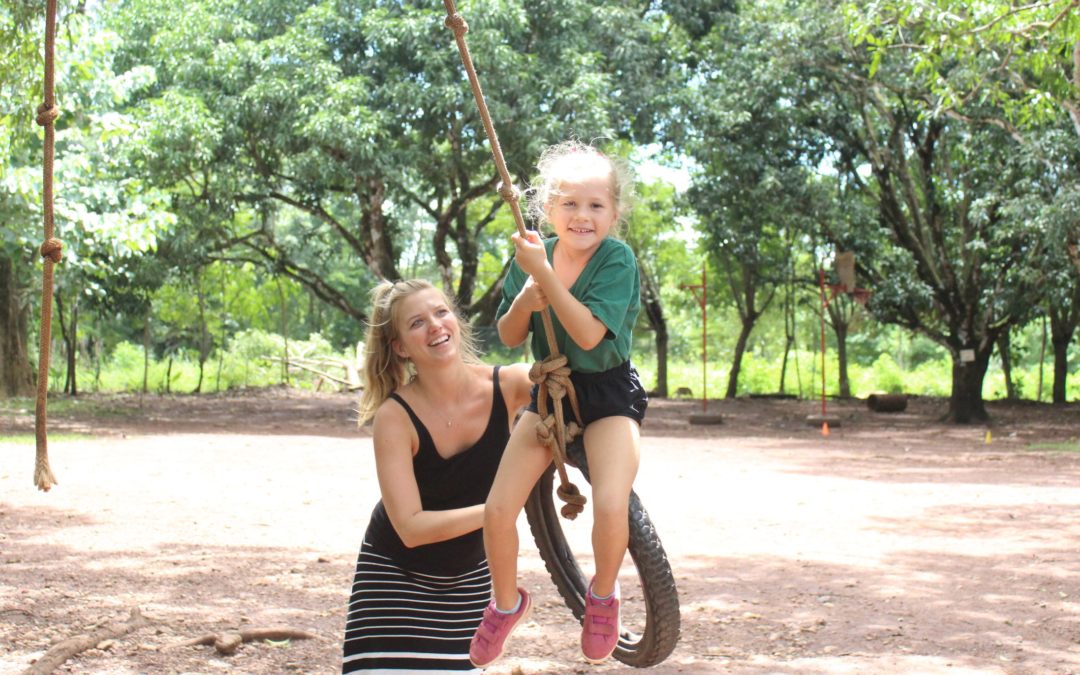
by David Brookshire, MPH/ School Counselor & Special Education Case Manager | Sep 18, 2017

Our IB learner profile value for the month of October is “Balanced.” This value is described by the International Baccalaureate organization in the following way:
“We understand the importance of intellectual, physical, and emotional balance to achieve personal well-being for themselves and others (IB 2017).”
My favorite way to discuss this topic with students comes from research in the field of positive psychology. The 5 ways to well-being are practices we can all incorporate in our lives, the research shows, to achieve intellectual, physical, and emotional balance. Here they are as a great reminder for how we can all make choices to enrich our own lives:
- Connect – By making connections with friends, family, colleagues. and neighbors, we add value to our lives with new experiences and opportunities. We can also connect with nature by prioritizing time outside.
- Be Active – By making time to move, exercise not only makes us feel good and it keeps us healthy. The benefits for mental health, physical health, and learning are profound and supported by decades of research.
- Take Notice – By being mindful, curious, and aware, like a child, we can see the wonder and beauty of the world around us. Noticing surroundings, with new appreciation, allows us to be present and grateful for all of the positive aspects of our lives
- Keep Learning – There’s no reason to ever stop learning. By trying something new, a new hobby you’ve been wanting to take up, or a more challenging task at work, challenges and novel experiences keep us alert and increase our confidence and satisfaction throughout the day.
- Give – Choosing to be generous, whether with time, knowledge, talents, or service; provides great reward for ourselves and those around us. It’s a true win/win for everybody and a great way to boost happiness.
By taking a proactive, mindful approach to balance and well-being, we can teach our children, and remind ourselves, how to create equilibrium and happiness in our lives.












